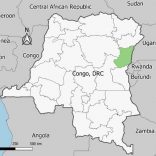Air France suspends flights to Madagascar amid security concerns
Escaping Brexit pushes SA stock buying to 7-yr high

As markets tumbled after last week’s Brexit vote, foreigners bought South African shares at the fastest pace in more than seven years, seeking havens in gold producers and dollar-earners.
Investors bought a net R4.22bn of the country’s stocks on Friday after the UK referendum result was known, bringing inflows for the week to R14.5bn, the most since March 2009, according to Johannesburg Stock Exchange data.
The flows came even as the country’s benchmark stock index fell and the rand weakened against the dollar.
A surge in the price of bullion attracted investors to the country’s gold miners, including Harmony Gold Mining [JSE:HAR] and Sibanye Gold [JSE:SGL]. Investors also bought stock in SABMiller [JSE:SAB] and British American Tobacco [JSE:BTI], companies that benefit from pound weakness by earning dollars and reporting in sterling, the data show.
Naspers [JSE:NPN], which owns a third of China’s largest internet company, Tencent Holdings, and reports in dollars, was the second-most popular stock among foreigners.
The valuations are attractive “when you consider that for international companies, revenues may be dollar-denominated and that the actual economic impact of Brexit on South Africa may be small,” William Jackson, senior emerging-markets economist at Capital Economics, said in emailed comments from London.
Winning streak
As the rand plunged as much as 8% against the dollar on Friday and the benchmark index tumbled by the most since May 2010, foreign investors were net purchasers of South African stocks for a 16th day, the longest winning streak since October 2010.
Sibanye Gold and Harmony Gold rose 13% as British voters stunned the world and triggered turmoil in markets by voting to leave the EU. The gold index surged 11%, partly as investors sought a store of value.
The purchases continued on Monday, with foreigners’ net buyers of R2.39bn of South African stocks.
While the referendum decision could have an immediate impact on more vulnerable emerging-market economies, it could ultimately support riskier assets as central banks in developed nations relax monetary policy, said Jeffrey Schultz, an economist at BNP Paribas Securities in Johannesburg.
After record net outflows of R30bn in the first five months of the year, investment into South Africa has seen a turnaround, Schultz wrote in a note on Monday.
Foreigners invested a net R65bn in their South African portfolios in June, “two-thirds of which has come from a resurgence of foreign appetite for domestic equities,” he said.













Leave a Reply
Be the First to Comment!
You must be logged in to post a comment.
You must be logged in to post a comment.